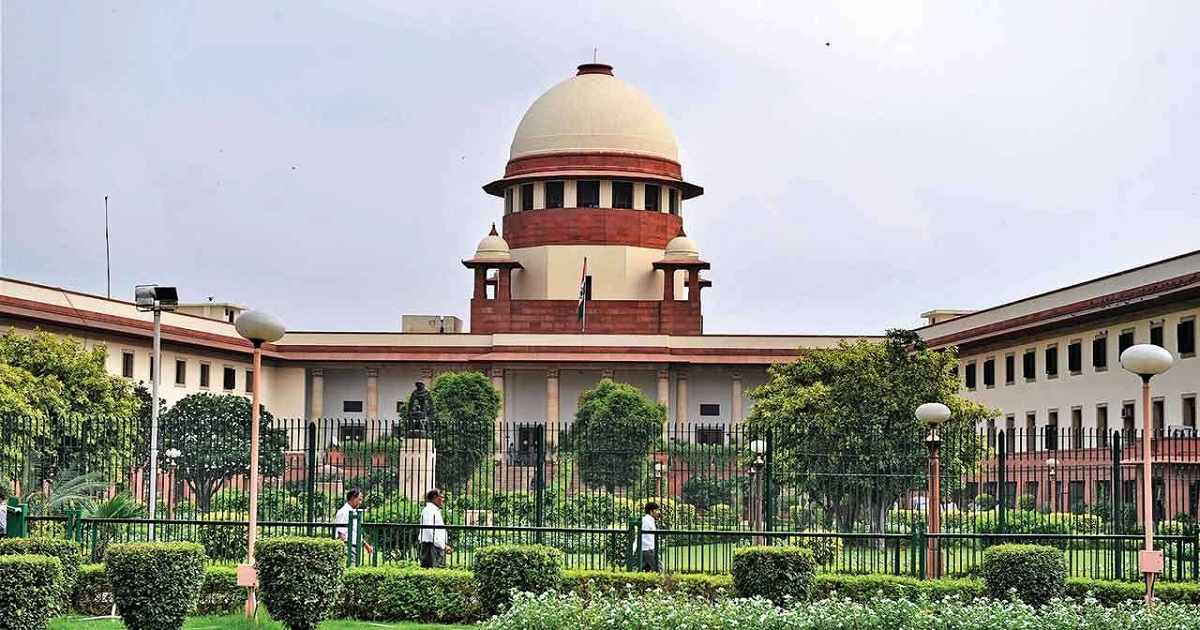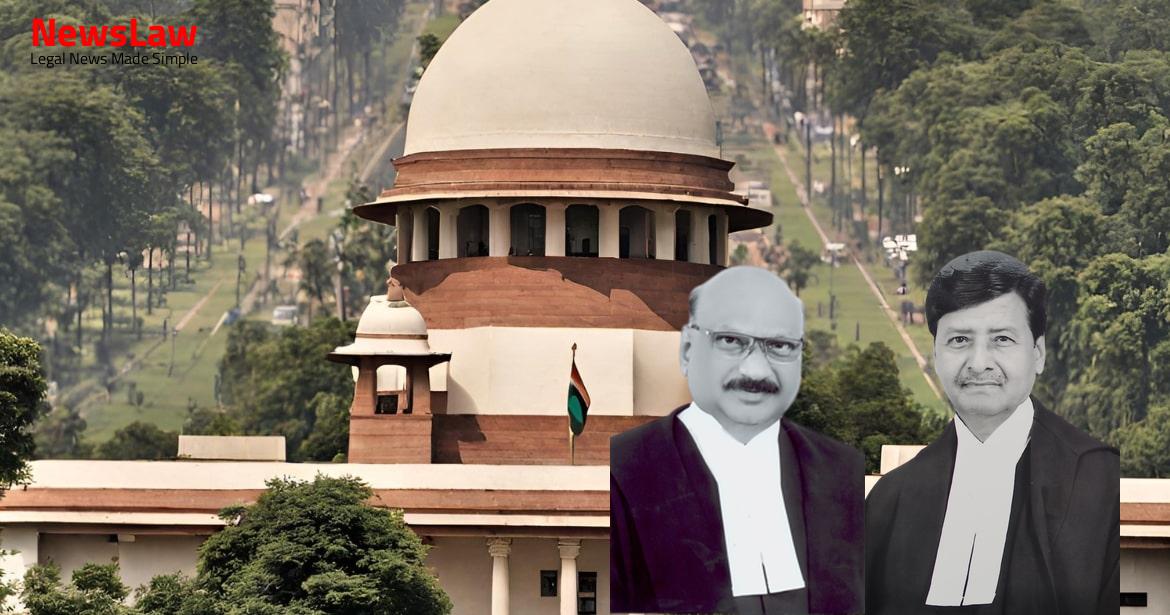The court’s legal analysis in the case highlights the importance of protecting endangered bird species from hazards like overhead power lines. The focus is on ensuring the conservation of wildlife while balancing the needs of infrastructure development. This summary delves into the court’s considerations regarding the implementation of measures to safeguard species like the Great Indian Bustard, emphasizing the shift from anthropocentric to ecocentric principles in environmental protection.
Facts
- The writ petition is filed in the nature of public interest seeking to protect the Great Indian Bustard (GIB) and the Lesser Florican from extinction due to hazards like overhead power lines.
- Application in I.A. No.85618/2020 seeks interim directions to the States of Rajasthan and Gujarat to implement measures like predator-proof fencing and controlled grazing in habitat areas.
- Directions are sought to prevent installation of overhead power lines, construction of windmills, and installation of solar infrastructure in identified priority habitats.
- The objective is to protect the two species of birds and prevent further casualties due to collisions with infrastructure.
Also Read: Electoral Malpractices in Mayor Election
Arguments
- Petitioners argue that certain common properties like rivers, seashores, forests, and air are held by the Government in trusteeship for public use.
- They assert that resources like air, sea, waters, and forests are of great importance to the people as a whole and should not be privately owned.
- Petitioners emphasize the importance of protecting the Great Indian Bustard (GIB) population, especially due to the threat posed by overhead power lines.
- The petitioners advocate for the installation of divertors for power lines to prevent bird collisions, particularly for the heavy Great Indian Bustards unable to maneuver around the power lines.
- The petitioners seek the undergrounding of future overhead power lines and prioritize selected power lines in GIB habitats for mitigation.
- Ministry of Power’s admission of GIB’s lack of frontal vision and the risks posed by power lines, as well as the findings of surveys conducted by Wildlife Institute of India in Thar, support the petitioners’ concerns.
- The petitioners’ ecocentric approach emphasizes the importance of nature, including both humans and non-humans, and the intrinsic value of non-human entities.
- Tender notifications were issued for underground power lines by Power Transmission Corporation of Uttarakhand Limited and Delhi Transport Limited.
- Invitation of public comments for laying underground cable transmission line of 220 KV by the Government of India, Ministry of Road Transport and Highways.
- Priority areas for intervention identified by Wildlife Institute of India and proposal submitted for necessary approvals.
- Action recommended to mitigate power-line mortality as a threat to bird species.
- Conservation strategy includes protecting bird eggs and transferring them to breeding centers, as well as providing predator-proof fencing to breeding grounds.
- Reference to underground power lines laid by GETCO for the safety of Greater Flamingos in the Khadir Region of Kutch.
- Arguments presented by both parties regarding the feasibility of underground power lines based on area, terrain, and distance.
- Effort to balance sustainable development and protection of rare bird species by saving birds while allowing appropriate power transmission.
- Recommendation to install ‘bird divertors’ on existing power lines and underground new power lines where technically feasible.
- Report by Wildlife Institute of India recommending mitigation of power transmission lines passing through priority bustard habitats by undergrounding cables or installing bird divertors.
- Reference to Power Grid Corporation report indicating feasibility and practice of undergrounding 220 KV power lines in India.
Also Read: Balancing Power and Transparency: Electoral Bonds Struck Down, Disclosure Mandated
Analysis
- State has a duty to maintain natural resources for the benefit of flora, fauna, and wildlife, not just for the public.
- Anthropocentrism places human interests above all else and views non-humans as having instrumental value to humans.
- Ecocentrism is nature-centered, where humans are part of nature and non-humans have intrinsic value.
- Article 21 of the Indian Constitution protects human rights and obligates humans to protect species from extinction.
- Environmental justice requires a shift from anthropocentric to ecocentric principles.
- Sustainable development must consider the needs of present and future generations without compromising the environment.
- Discussion on the protection and conservation of endangered species includes re-building principles of Sustainable Development.
- Anthropocentrism prioritizes human interests and views non-humans as valuable only in relation to humans.
- Definition of ‘environment’ as per Environment (Protection) Act, 1986
- Importance of protecting bird species, specifically Great Indian Bustards (GIB)
- Utilization of State Fund for wildlife habitat improvement
- Conversion of low voltage powerlines in GIB habitats to underground lines
- Conversion of existing low voltage overhead powerlines in GIB habitats to underground lines
- Conversion of high-voltage powerlines in GIB habitats to underground lines
- Creation of a committee to assess feasibility of laying underground power lines in priority areas
- Application of corporate social responsibility towards environmental protection
- Importance of preventing species extinction and advocating for effective protection regimes
- Implementation of bird divertors in powerline installations to protect GIB habitat
- Details of powerlines for installation of bird divertors in Kutch and Rajasthan
Also Read: Recall of Resolution Plan Approval: Legal Analysis
Decision
- Respondents No. 5, 6, and 9-11 to lay powerlines underground if feasible
- Conversion of overhead cables to underground powerlines to be completed within a year if feasible
- Committee to assess feasibility of underground powerlines in cases where issues are found
- Installation of divertors on existing powerlines in priority GIB areas
- Future cases of installing transmission lines to consider feasibility of underground laying
- Cost incurred in laying transmission lines underground to be provided by specific respondents
Case Title: M.K. RANJITSINH Vs. UNION OF INDIA (2021 INSC 258)
Case Number: W.P.(C) No.-000838 / 2019



